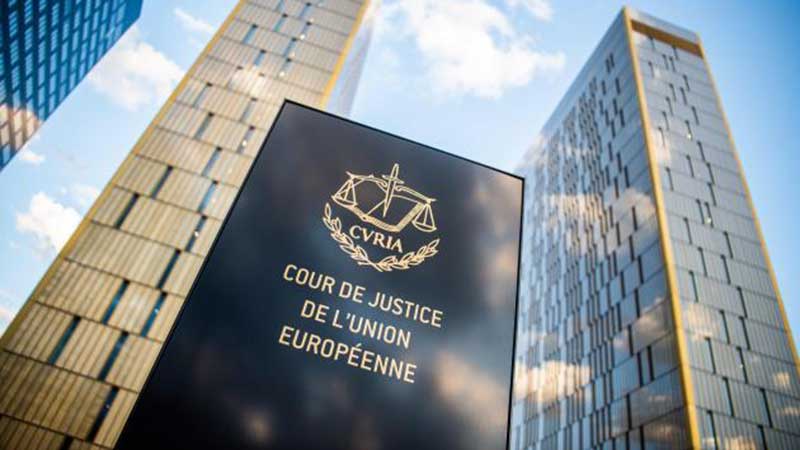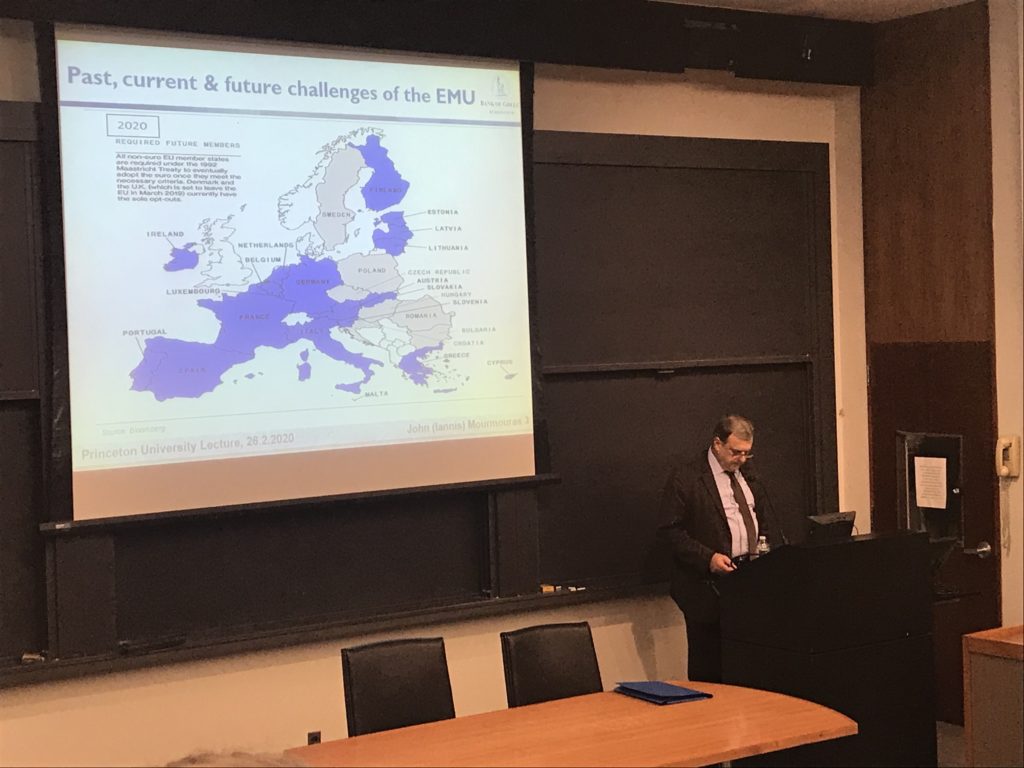In 2015, the European Central Bank (ECB) launched a massive quantitative easing plan, purchasing government bonds and other securities worth some €2.6 trillion in order to increase money supply, keep inflation at around 2%, encourage private lending and spur economic activity in the midst of the eurozone debt crisis. The largest part of the scheme, known as the Public Sector Purchase Program (PSPP), involved the ECB’s purchase of bonds issued by euro-area governments worth some €2.1 trillion. At the program’s peak in 2016, before it ended in 2018, the ECB was buying up to €80 billion of assets monthly.
On May 5 of this year, the constitutional court of the EU’s largest economy — the German Federal Constitutional Court (BVerfG) — issued a landmark ruling on this stimulus plan. In its judgement, the BVerfG expressed its concern that the PSPP violated the limits set in Article 123 of the Treaty on the Functioning of the EU (TFEU) regarding the purchasing of public debt instruments by the ECB, as well as the principle of conferral in Article 5(1) of the Treaty on EU (TEU), which declares that unless a power is explicitly mentioned in one of the two EU treaties, it should be exercised by national governments rather than an EU institution. Given these facts, the judgment ruled that the ECB’s decision from March 2015 to expand quantitative easing in the form of the PSPP was ultra vires, or beyond the authority of the ECB. It gave the ECB’s Governing Council three months to prove otherwise.
However, the ruling comes as a shock not so much to the ECB, but rather the European Court of Justice (ECJ) — which, under Article 263 of the TFEU, is tasked with interpreting EU law, ensuring is application across EU member states, and reviewing the legality of actions undertaken by the EU institutions. In December 2018, the ECJ issued its own ruling about the ECB’s quantitative easing program in response to similar concerns from Germany. The ECJ found that the ECB’s actions did not infringe EU law, nor did they exceed the ECB’s legal mandate. In the simplest of terms, since the program constituted monetary policy — over which the EU has exclusive competence for eurozone member countries — the ECB acted within its powers. And since the ECJ found that neither decreasing the volume of asset purchasing, nor the program’s duration, would have been able to achieve as effectively and rapidly inflation targets, the ECB’s actions adhered to the principle of proportionality in that they were legitimate, suitable, necessary, and reasonable to achieve the aim of keeping eurozone inflation at around 2%.

The BverfG disagreed with this, dismissing the ruling as “incomprehensible” and arbitrary. While acknowledging that the Treaties stipulate that only the ECJ may conduct ultra virus reviews on EU institutions, the German court held that the principle of conferral means that member states can judicially intervene when the threat of an expansion of competencies that has not been codified in one of two EU treaties exists. The ECJ’s failure to consider the fiscal effects of the ECB’s monetary actions and the proportionality of the PSPP justified the BverfG’s decision to rule that the ECJ, just like the ECB, had acted ultra virus.

The ruling is important for several reasons. The first is the potential limits that it sets on actions that the ECB may take to prop up the eurozone during downturns such as the current coronavirus crisis. The ECB is currently engaged in a €1.35 billion Pandemic Emergency Purchase Program (PEPP) which involves the purchase of private and public sector securities to lower the cost of borrowing and prompt economic activity — a scheme that is similar to its response to the debt crisis five years ago. While the ruling explicitly says it doesn’t concern the ECB’s PEPP, it may result in a reduction of the ECB recession toolkit in future and the actions it allows itself to take during downturns. Within the context of Europe’s worst recession downturn, this may put recovery in jeopardy.
The second reason why the BverfG decision is important is the implications it has for the supremacy of EU law and the ECJ’s ability to ensure its uniform application throughout the Union. The May 5 decision is not the first time the German court has challenged the primacy of EU law and the authority of its top court. In 1974, the BverfG ruled that EU law — then known as European Community law — cannot take priority over national law when it comes to inalienable rights. In another case in 2016, the BverfG ruled that national courts must counter actions of EU institutions, including the ECJ, when those actions are ultra vires. Czech and Danish courts have reached similar rulings in the past. Some experts argue that these push-backs from national courts actually strengthen Europe’s legal landscape: given the ECJ’s power to sanction member states when their legislation violates EU law, in a system of checks and balances the ECJ should also be subject to constraints.
Yet others argue that the recent decision could lead to the erosion of the ECJ’s status as the highest arbitrator of EU law, with serious consequences for the enforcement of the rule of law in the Union. In response to the BverfG judgement, the ECJ issued a statement in which it stressed that it alone holds the power to rule whether an act of an EU institute contravenes EU law, and that “divergences between courts of the Member States as to the validity of such acts would … place in jeopardy the unity of the EU legal order.” Legal experts D. Sarmiento and D. Utrilla agree: they write that the decision “clears the way for the ultra vires test to become an ordinary part of the toolbox of every national court,” which could be leveraged by courts in countries like Poland and Hungary where the executive branch has implemented reforms compromising judicial independence.
The Polish government has previously criticized what it calls ‘EU meddling’ in its judicial system; after the BVerfG decision, Poland’s Deputy Minister for Foreign Affairs said that the judgement was revolutionary “in terms of the effects it could have [on] the competence of national authorities … to verify whether the EU institutions are acting within the powers assigned to them in the Treaties.” Should national courts assume the role of arbitrating the legality of decisions undertaken by EU institutions, any ECJ judgement that finds a member state violating EU law or attacking core EU values like judicial independence could be scrutinized and deemed ultra vires by a politically-controlled national court.
There are several ways to help prevent this scenario from unfolding. The first and most straightforward is the initiation of infringement proceedings, which are a set of actions the Commission undertakes when member states are suspected of violating the Treaties. Commission President Ursula von der Leyen, reacting five days after the BverfG decision, stressed that “the final word on EU law is always spoken in Luxembourg,” and that the Commission was considering such proceedings against Germany. In the long term, further steps proposed by some include the creation of a type of upper chamber within the ECJ to be tasked with reviewing national court judgements that, like the BVerfG ruling, find an EU institution to be overstepping its mandate. In this way, the ECJ would once again be the last arbitrator in all matters concerning EU law.
Europe needs an ECJ whose decisions are respected not only for the sound functioning of the single market, but increasingly for the enforcement of the rule of law in a number of member states. In an era of populism and pandemics, this is increasingly important. The Commission should take all actions necessary in order to maintain the ECJ’s authority — even if this means reforming the ECJ and pursuing an infringement procedure against one of the EU’s most Europhile members.

